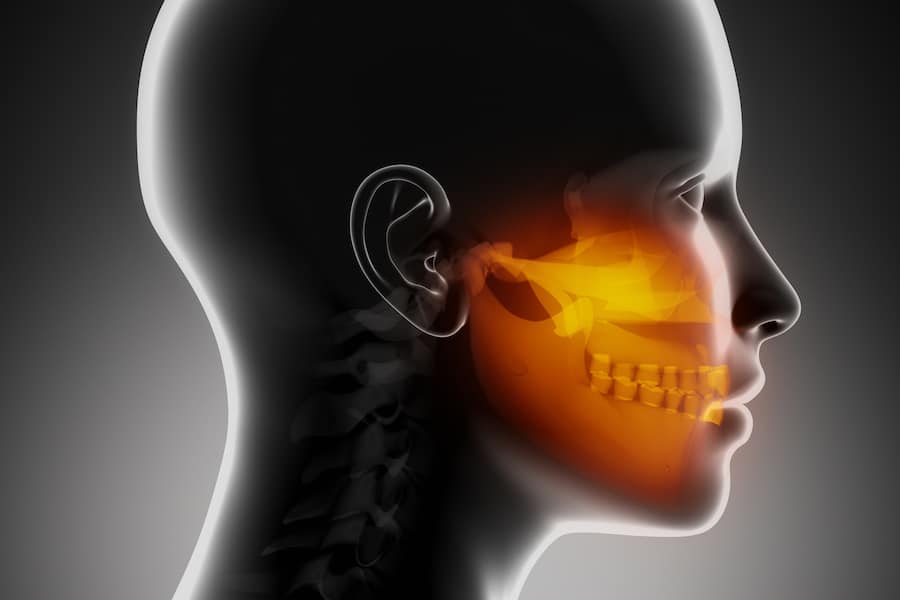Are you considering jaw revision surgery but unsure if it’s worth the complexity? Look no further. In this comprehensive guide, we will delve into the intricacies of jaw revision surgery and help you make an informed decision.
Jaw revision surgery, also known as orthognathic surgery, is a procedure that aims to correct various jaw-related issues, such as misalignment, asymmetry, or breathing difficulties. While this procedure may seem complex, it has the potential to not only enhance your facial aesthetics but also improve your oral health and quality of life.
Throughout this guide, we will explore the benefits, risks, and considerations involved in jaw revision surgery. From understanding the different types of jaw revision surgeries to knowing what to expect during the recovery process, we’ve got you covered.
If you’re wondering whether jaw revision surgery is worth the complexity, stay tuned. We will provide you with valuable insights and expert advice to help you make an informed decision about this life-changing procedure.
Remember, knowledge is power. So, let’s dive in and discover if jaw revision surgery is the right choice for you.
Understanding jaw revision surgery
Jaw revision surgery, or orthognathic surgery, is a specialized procedure performed by maxillofacial surgeons to correct various jaw-related issues. These issues can range from minor cosmetic concerns to significant functional problems that affect a person’s ability to chew, speak, and breathe properly.
There are several reasons why individuals consider jaw revision surgery. These may include correcting a protruding or receding jaw, addressing facial asymmetry, improving chewing or speaking abilities, resolving sleep apnea or breathing difficulties, or alleviating temporomandibular joint (TMJ) disorders.
The complexity of jaw revision surgery lies in the fact that it involves repositioning the jaws to achieve proper alignment. This often requires the surgeon to make precise cuts in the bones of the upper and lower jaws, followed by repositioning and securing them using plates, screws, or wires. While this may sound daunting, advancements in surgical techniques and technology have significantly improved the success rate and recovery time for this procedure.
Reasons for considering jaw revision surgery
There are several reasons why individuals may choose to undergo jaw revision surgery. One of the primary motivations is to improve facial aesthetics. A misaligned jaw can significantly impact the overall symmetry and balance of the face, leading to self-esteem issues and a lack of confidence. By correcting the jaw alignment, individuals can achieve a more harmonious facial appearance, enhancing their self-image and overall well-being.
Another common reason for considering jaw revision surgery is to address functional problems. Jaw misalignment can affect a person’s ability to chew food properly, leading to digestive issues and malnutrition. It can also impact speech, causing difficulties in pronunciation and communication. By correcting the jaw alignment, individuals can improve their chewing and speaking abilities, leading to better overall health and quality of life.
Additionally, some individuals may consider jaw revision surgery to alleviate sleep apnea or breathing difficulties. A misaligned jaw can narrow the airway, making it harder for individuals to breathe properly during sleep. This can result in interrupted sleep patterns and chronic fatigue. Jaw revision surgery can help open up the airway, allowing for better airflow and improved sleep quality.
Risks and complications of jaw revision surgery
As with any surgical procedure, jaw revision surgery carries certain risks and potential complications. It is essential to be aware of these before making a decision.
One of the primary risks is infection. Since jaw revision surgery involves making incisions and manipulating the bones, there is a risk of bacteria entering the surgical site. Surgeons take precautions to minimize this risk, such as administering antibiotics and maintaining strict sterile conditions during the procedure. However, infections can still occur, and prompt treatment is necessary to prevent further complications.
Another potential complication is nerve damage. The nerves that control sensation and movement in the face and mouth are delicate and can be inadvertently damaged during surgery. This can result in temporary or permanent numbness, tingling, or weakness in the affected area. While nerve damage is relatively rare, it is a risk that should be considered.
Excessive bleeding during or after surgery is another potential complication. Surgeons take measures to minimize bleeding, such as using specialized techniques and medications to promote clotting. However, in some cases, bleeding may require additional intervention or transfusion.
Additionally, there is a risk of relapse or unsatisfactory results. Despite the surgeon’s best efforts, the jaw may not heal or align as intended, requiring further procedures or adjustments. It is crucial to have realistic expectations and understand that jaw revision surgery is not a guarantee of perfection.
Preparing for jaw revision surgery
Proper preparation is crucial for a successful jaw revision surgery. Your surgeon will provide you with specific instructions tailored to your individual case. Here are some general guidelines to help you prepare:
1. Consultation and evaluation: The first step is to schedule a consultation with a qualified maxillofacial surgeon. During this appointment, the surgeon will evaluate your case, discuss your goals and expectations, and determine if you are a suitable candidate for jaw revision surgery. They will also explain the procedure in detail and answer any questions or concerns you may have.
2. Medical evaluation: Before undergoing surgery, you will need a thorough medical evaluation to ensure you are in good overall health. This may involve blood tests, imaging scans, and consultations with other specialists if necessary.
3. Quit smoking and limit alcohol consumption: Smoking and excessive alcohol consumption can have a negative impact on the healing process. It is advisable to quit smoking and limit alcohol intake for a certain period before and after surgery to minimize complications and promote optimal healing.
4. Medication review: Inform your surgeon about any medications, supplements, or herbal remedies you are currently taking. Some medications may need to be temporarily discontinued or adjusted before and after surgery to minimize the risk of bleeding or other complications.
5. Arrange for support: Jaw revision surgery often requires a significant recovery period, during which you may need assistance with everyday tasks. Arrange for a friend or family member to stay with you during the initial stages of recovery to provide support and help you navigate any post-operative challenges.
6. Plan for time off work: Depending on the complexity of the surgery and your individual healing process, you may need to take several weeks off work or limit your activities during the recovery period. Discuss this with your surgeon and make appropriate arrangements in advance.
Remember, these are general guidelines, and your surgeon’s instructions should take precedence. Following their recommendations will help ensure a smooth and successful surgery.
The jaw revision surgery process
Jaw revision surgery is typically performed under general anesthesia in a hospital or surgical center. The exact procedure may vary depending on the specific jaw issues being addressed and the surgeon’s preferred approach. However, the general steps involved in the jaw revision surgery process are as follows:
1. Anesthesia: Before the surgery begins, you will be given anesthesia to ensure you are comfortable and pain-free throughout the procedure. General anesthesia is commonly used, which means you will be asleep and unaware during the surgery.
2. Incisions and bone cuts: Once you are under anesthesia, the surgeon will make incisions inside your mouth to access the jaw bones. They will then carefully make precise cuts in the bones to reposition them as planned. In some cases, additional bone grafts or reshaping may be necessary to achieve the desired outcome.
3. Repositioning and fixation: After the bones are repositioned, the surgeon will secure them in place using plates, screws, or wires. These fixation devices provide stability and support during the healing process.
4. Closing the incisions: Once the bones are secured, the incisions inside your mouth will be closed using dissolvable sutures. In some cases, external incisions may be necessary, which will be closed using traditional sutures that will need to be removed later.
5. Recovery and observation: After the surgery is complete, you will be taken to a recovery area where medical professionals will monitor your vital signs and ensure you are waking up comfortably from anesthesia. Once you are stable, you will be transferred to a hospital room or discharged home, depending on the surgical facility’s protocol.
It is important to note that the exact details of the surgery may vary based on the individual case and the surgeon’s approach. Your surgeon will provide you with specific instructions and address any questions or concerns you may have before the procedure.
Recovery and aftercare for jaw revision surgery
The recovery period after jaw revision surgery can vary depending on the complexity of the procedure, individual healing factors, and adherence to post-operative instructions. Here are some general guidelines to help you navigate the recovery and ensure optimal healing:
1. Pain management: It is normal to experience some discomfort, swelling, and bruising after jaw revision surgery. Your surgeon will prescribe pain medication to manage any pain or discomfort during the initial stages of recovery. Follow the prescribed dosage and schedule carefully.
2. Swelling and bruising: Swelling and bruising are common side effects of jaw revision surgery and may last for several weeks. Applying cold compresses to the affected areas during the first few days can help reduce swelling. Your surgeon may also recommend specific techniques, such as lymphatic massage, to promote drainage and minimize swelling.
3. Diet and nutrition: Following jaw revision surgery, your ability to chew may be compromised temporarily. Your surgeon will provide you with specific dietary guidelines, which may include a liquid or soft food diet for a certain period. It is essential to follow these instructions to ensure optimal healing and minimize the risk of complications.
4. Oral hygiene: Proper oral hygiene is crucial during the recovery period to prevent infection and promote healing. Your surgeon will provide you with specific instructions on how to care for your oral incisions, including gentle rinsing with saltwater or prescribed mouthwash. It is important to avoid brushing or flossing the incision areas until cleared by your surgeon.
5. Follow-up appointments: Regular follow-up appointments with your surgeon are necessary to monitor your progress, remove any external sutures if necessary, and address any concerns or complications that may arise during the healing process. Attend all scheduled appointments and communicate openly with your surgeon about your recovery experience.
Remember, every individual’s recovery process is unique, and it is essential to follow your surgeon’s specific instructions for the best possible outcome. Patience, rest, and proper self-care will play a significant role in your recovery from jaw revision surgery.
Success stories and testimonials from jaw revision surgery patients
Hearing about the experiences of others who have undergone jaw revision surgery can provide valuable insights and reassurance. Here are a few success stories and testimonials from patients who have undergone this life-changing procedure:
1. Sarah’s Story: Sarah had been self-conscious about her protruding jaw since her teenage years. She decided to undergo jaw revision surgery to correct the alignment and improve her facial symmetry. After the surgery, Sarah experienced a significant boost in her self-confidence and felt more comfortable in social situations. She no longer felt the need to hide her smile, and the positive impact on her overall well-being was immeasurable.
2. Mark’s Testimonial: Mark had been struggling with severe sleep apnea for years. His misaligned jaw was causing obstruction in his airway, leading to interrupted sleep patterns and chronic fatigue. After undergoing jaw revision surgery, Mark noticed a remarkable improvement in his sleep quality. He woke up feeling refreshed and energized, and his partner also commented on his decreased snoring. The surgery not only improved Mark’s quality of life but also reduced his risk of long-term health complications associated with sleep apnea.
3. Emily’s Experience: Emily had been dealing with severe jaw pain and difficulty chewing due to a misaligned jaw. This impacted her ability to enjoy meals and affected her overall nutrition. After undergoing jaw revision surgery, Emily experienced a significant improvement in her chewing abilities and a reduction in jaw pain. She could finally enjoy her favorite foods without discomfort, leading to a more fulfilling and enjoyable eating experience.
These success stories and testimonials highlight the life-changing potential of jaw revision surgery. While every individual’s experience may vary, it is clear that the benefits can extend beyond purely cosmetic improvements, positively impacting overall well-being and quality of life.
Alternatives to jaw revision surgery
While jaw revision surgery can be a highly effective solution for certain jaw-related issues, it is essential to explore all available options before making a decision. In some cases, alternative treatments or procedures may be more suitable or less invasive.
One alternative to consider is orthodontic treatment. In some instances, misalignment or asymmetry of the jaw can be addressed through orthodontic interventions, such as braces or clear aligners. Orthodontic treatment aims to gradually shift the position of the teeth and jaws, resulting in improved alignment and facial aesthetics. However, it is important to consult with a qualified orthodontist to determine if this approach is suitable for your specific case.
Another alternative to jaw revision surgery is non-surgical facial rejuvenation procedures. These may include dermal fillers, which can be used to enhance facial contours and balance the proportions of the face without the need for surgery. Non-surgical options are generally less invasive and have a shorter recovery period, but they may not provide the same level of correction as jaw revision surgery. It is crucial to consult with a qualified cosmetic professional to discuss the pros and cons of non-surgical options in relation to your specific goals and concerns.
Ultimately, the choice between jaw revision surgery and alternative treatments will depend on various factors, including the severity of the issue, personal preferences, and the recommendations of qualified medical professionals. It is important to consult with a maxillofacial surgeon and consider all available options before making a decision.
Choosing the right surgeon for jaw revision surgery
Selecting the right surgeon for your jaw revision surgery is crucial for a successful outcome. Here are some factors to consider when choosing a surgeon:
1. Board certification and qualifications: Ensure that the surgeon is board-certified in maxillofacial surgery or a related field. This certification indicates that they have undergone rigorous training and meet the highest standards of professional competence.
2. Experience and expertise: Inquire about the surgeon’s experience in performing jaw revision surgery. Ask how many similar procedures they have performed and request to see before-and-after photos of previous patients. A surgeon with extensive experience in jaw revision surgery is more likely to deliver optimal results.
3. Patient reviews and testimonials: Research patient reviews and testimonials to learn about the experiences of others who have undergone jaw revision surgery with the specific surgeon you are considering. Positive reviews and feedback can provide valuable insights into the surgeon’s skills, bedside manner, and overall patient satisfaction.
4. Communication and rapport: During your initial consultation, pay attention to how the surgeon communicates with
Conclusion
Jaw revision surgery, also known as orthognathic surgery, is a specialized procedure performed by an oral and maxillofacial surgeon to correct various jaw-related issues. These issues can range from functional problems, such as difficulty chewing or speaking, to aesthetic concerns like a receding chin or an imbalanced facial profile.
There are several factors to consider when determining if jaw revision surgery is necessary. These may include severe misalignment of the jaws, difficulty breathing or swallowing, chronic jaw pain, or the desire to improve facial aesthetics. It’s important to consult with a qualified surgeon who can evaluate your specific needs and determine if jaw revision surgery is the right solution for you.






